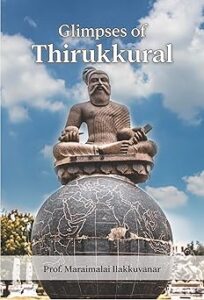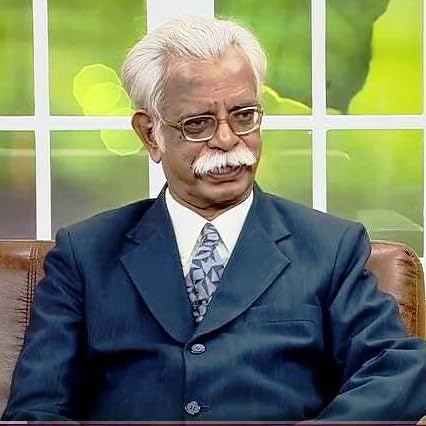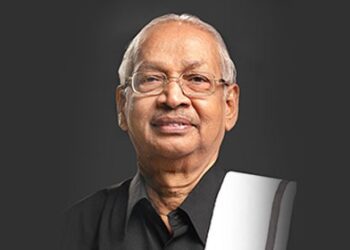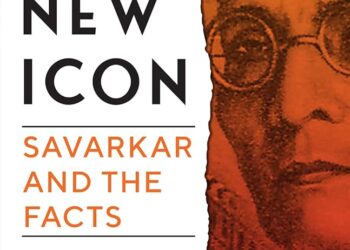.continuing from the previous issue

An intense reading of Thirukkural will reveal the fact that Thiruvalluvar is heterodox. We are baffled by Dr.Nagaswamy’s baseless argument and articles describing him as an orthodox. To be precise, I will quote Manu’s verses and Thirukkural couplets which defy and deny Manu.
Manusmriti:
“In order to clearly settle his duties those of the other (castes) according to their order, wise Manu sprung from the Self-existent, composed these Institutes (of the sacred Law).”
“A learned Brahmana must carefully study them, and he must duly instruct his pupils in them, but nobody else (shall do it).”
While Manu restricts learning and teaching as the sole birth-right of Brahmins. Thirukkural insists on every living being to learn. Thirukkural insists everybody in the world should learn. This advice is irrespective of caste and creed as Thirukkural does not mention caste or creed anywhere. These couplets given below may be cited as evidences.
The science of numbers as well as the arts of letters rare,
Are both of them the eyes of men alive the wise declare?
The men devoid of learning, though they are of higher birth,
Will not equal the men of lower birth with learning’s worth.
Manusmriti:
Let him not give to a Sudra advice, nor the remnants (of his meal), nor food offered to the gods; nor let him explain the sacred law (to such a man), nor impose (upon him) a penance.
Thirukkural:
Eating alone to increase one’s accumulated wealth, is more distressing than begging.
The fear of seeking alms / Dread of mendicancy
Manusmriti:
He shall neither possess a fire, nor a dwelling, he may go to a village for his food, (he shall be) indifferent to everything, firm of purpose, meditating (and) concentrating his mind on Brahman.
Thirukkural:
Nothing but begging shames the tongue more
Even if what is sought is water for the cow.
Farming / Agriculture
Manusmriti:
(Some) declare that agriculture is something excellent, (but) that means of subsistence is blamed by the virtuous; (for) the wooden (implement) with iron point injuries the earth and living in the earth.
Thirukkural:
The world tails the plough despite other pursuit
Even if one toils, farming remains foremost.
Self-declared supremacy of Manu
Manusmriti:
Whatever law has been ordained for any (person) by Manu that has been fully declared in the Veda: for that (sage was) omniscient.
Supremacy of Brahmins
Manusmriti:
When a learned Brahmana has found treasure, deposited in former (times), he may take even the whole (of it); for he is master of everything.
When the king finds the treasure of gold concealed in the ground let him give one half to Brahmanas and place the half in his treasury.
The virtue of truth-speaking
Manusmriti:
No crime, causing loss of caste, is committed by swearing (falsely) to women, the objects of one’s desire, at marriages, for the sake of fodder for a cow, or of fuel, and in (order to show) favour to a Brahmana.
Thirukkural:
No other fame equals not lying; without any physical strain, it yields all virtues.
Not lying, not lying, if practiced, makes it acceptable not to do, not to do other righteous deeds.
The virtue of spurning meat/Avoidance of flesh-eating
Manusmrti:
Agigarta, who suffered hunger, approached in order to slay (his own) son and was not tainted by sin, since he sought a remedy against famishing.
Vamadeva, who well knew right and wrong, did not sully himself when tormented (by hunger), he desired to eat the flesh of a dog in order to save his life.
Bharadvaja, a performer of great austerities, accepted many cows from the carpenter Bribu when he was starving together with his sons in a lonely forest.
Thirukkural:
To desist from killing life and
eating it, is better than doing a
thousand rituals, offering oblation.
Avoidance of killing / Not killing
(any living being)
Manusmrti:
One may eat meat when it has been sprinkled with water, while Mantras were recited, when Brahmanas desire (one’s doing it), when one is engaged (in the performance of a rite) according to the law, and when one’s life is in danger.
He who eats meat, when he honors the gods and manes, commits no sin, whether he has bought it, or himself has killed (the animal), or has received it as a present from others.
Thirukkural:
Even if one were to sacrifice one’s own life, do not commit the act of taking another life.
Even if great wealth leads to great benefits, great men loathe wealth obtained by the sacrifice of lives.
For those who can see the folly of it, the savage imbeciles in any profession involving killing are doing a despicable job. The list of contrasts between Manusmrit and Thirukkural will be very long, and this denotes the cultural division. P.T.Srinivasa Iyengar, an eminent historian clearly demarcates the cultural background of the North and South or Aryan and Dravidian: The daring assertion of Nagaswamy that “Valluvar accepts the four-fold Varna system” is totally refuted by the scholarly observation of P.T.Srinivasa Iyengar, that “the Brahmanas did not succeed in arranging the people of Southern India as member of the four varnas as they did in North India.
The chapter on “Avoidance of drinking liquor” in Thirukkural does not only aim to advise people of all walks but also chastises the Aryan custom of drinking Soma wine.
The Soma beverage was prepared with much ceremony from the juice of a plant. While the Rig Veda celebrates the drinking of Soma liquor, Thiruvalluvar condemns the drinking habit vehemently: The couplets of Thirukkural clearly reveal the demarcation between the Vedic marg celebrated by Nagaswamy and the way of life Thirukkural preaches for more civilized life. While Vedic dharma preaches that drinking Soma liquor will bring bliss and wealth, Thirukkural warns drinking will bring disgrace and shame to mankind. Dr.Nagaswamy shamelessly tells a blatant lie that “Valluvar is the first and foremost to bring down the Vedic dharma system to the Tamils with absolute authority”.
The difference between Dharmasastras and Thirukkural is the difference between a religious oligarchy that suppressed a majority of the people in the name of Dharma and social democracy which acted as a basis for the wonderful Thirukkural.
Dharma is law and Aram is in other words social justice. Dharma is sectarian and Aram is cosmopolitan and universal. Dharma divides people; Aram unifies them. Dharma threatens a majority to obey unjustified rules imposed by a minority for the benefit of a minority. Aram appeals to everybody to lead a peaceful co-existent life.
Thirukkural teaches Aram to be followed by everyone to mould and shape an egalitarian society. Dharmasastras mercilessly imposed cruel orders to be obeyed without any question to maintain the hegemony of Brahmin domination. In this age of awareness among the downtrodden to fight for their rights, Dharmas are dying a natural death. Aram will flourish to usher in a golden age of liberty, equality, and fraternity.
Does Nagaswamy lack enough knowledge to understand the forward-looking wisdom of Thiruvalluvar and pragmatic advice given by him for the whole of humanity? No. He pretends that he is unaware of the iconoclastic stand taken by Valluvar to defy the section Vedic dharma. In fact, he fears Valluvar carries dynamic enough to bombard the Vedic school and shatter the barriers put forth by the so-called Shastras. By his misadventure he vainly attempts to freeze a volcano. Thirukkural is now reaching more and more nations through more and more translations. The spread of Thirukkural will surely diminish the unwanted importance given to the shastras.
Albert Schweitzer
Here I wish to quote Albert Schweitzer: “What a difference between the Thirukkural and the Laws of Manu, which originated some four centuries before it! In the latter, under the dominance of the Brahmanic spirit, world and life affirmation is still just tolerated alongside world and life negation. In the Thirukkural world and life negation is only like a distant cloud in the sky” Indian thought and its development.
He clearly portrays the highest position of Thirukkural in Indian philosophy and ethics: “Whilst the Bhagavad-Gita in a forced and chilly manner gives as a motive for remaining inactive life that is in accordance with the order of the Universe, the Thirukkural justifies it – What an advance! – by the idea of ethical activity. Work and profit place a man in a position to do good”








